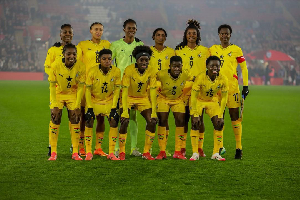The Upper West Branch of the Ghana Coalition of NGOs in Health has urged the government to deliver essential life-saving drugs to health facilities within two months to avert the collapse of the health system.
The government should also immediately release funds for the payment of all outstanding debts owed to health facilities across the country to enable Ghanaians to access healthcare without necessarily paying at the point of use.
Mr. Salifu Issifu Kanton, the Upper West Regional Chairman, of the Coalition, made the call at a press conference in Wa.
He stated that the Coalition was ‘gravely worried about the acute shortage of essential medical supplies in most health facilities in the region, and the country at large.’
He said the Coalition had observed that across all the 11 districts of the Region health, facilities were severely constrained with basic life-saving medications.
“The medical stores and dispensaries of various health facilities across the region are practically empty with no supplies for essential medicines such as antibiotics, normal saline, ringers and many other basic medicines,” he pointed out.
Mr. Issifu Kanton noted that the situation had caused untold hardship and misery, particularly, to the poor and as a result denied many citizens their right to basic quality healthcare.
“Our interactions with many health service consumers in the region, particularly, in the rural communities reveal a sad state, he stated.
“Most of them are simply unable to purchase their medications and are getting disappointed with the quality of health services and the health insurance system”.
He explained that checks by the Coalition with many health providers revealed that the situation was mainly because the health insurance had failed to pay claims of more than months.
The Regional Chairman of the Coalition of NGOs in Health said this caused all the district health facilities to be heavily indebted to the regional medical store, which in turn became heavily indebted to its suppliers.
Mr. Kanton noted that the situation had been compounded by the January 13 fire outbreak, which destroyed the Central Medical Stores, in Tema.
He said the Coalition was, therefore, demanding that the Ministry of Finance publicly declare how much the National Health Insurance Levy (NHIL) had generated over the years and state how much it disbursed to the National Health Insurance Authority (NHIA).
“We are calling on the government to keep faith with its citizens and ensure that the NHIA fulfills its vision of providing universal access to basic quality healthcare for all citizens of Ghana by way of releasing resources on time to the NHIA as by law required,” he emphasised.
Mr. Kanton said the Coaltion firmly believed that government had what it took to fulfill its social contract of providing accessible basic quality healthcare to the citizens and appealed to the government to endeavour to take the necessary action to fix the problems.
Dr. Winfred Ofosu, Deputy Upper West Regional Director in charge of Public Health, when contacted by the Ghana News Agency (GNA), said there was a challenge but that could cause panic in health delivery in the region.
He said they had two sources of medical supplies namely; the Central Medical Stores and the open market, explaining that whenever they failed to get medical supplies from the Central Medical Stores they went to the open market.
Dr. Ofosu said some procurement were made last year, which they were yet to receive, therefore, upon delivery it would be enough to last them up to end of the second quarter.
Mr. Titus Sory, Regional Director of the NHIA, when contacted by the GNA, however, refuted that the Scheme owed service providers seven months in arrears.
He noted that the scheme was in debt for three months: August, September and October, saying the November and December claims were still being processed, while that of January 2015 was yet to be submitted.
Mr. Sory said the terms of payment were that claims under process could not be counted as debt.
Health News of Saturday, 14 February 2015
Source: GNA












